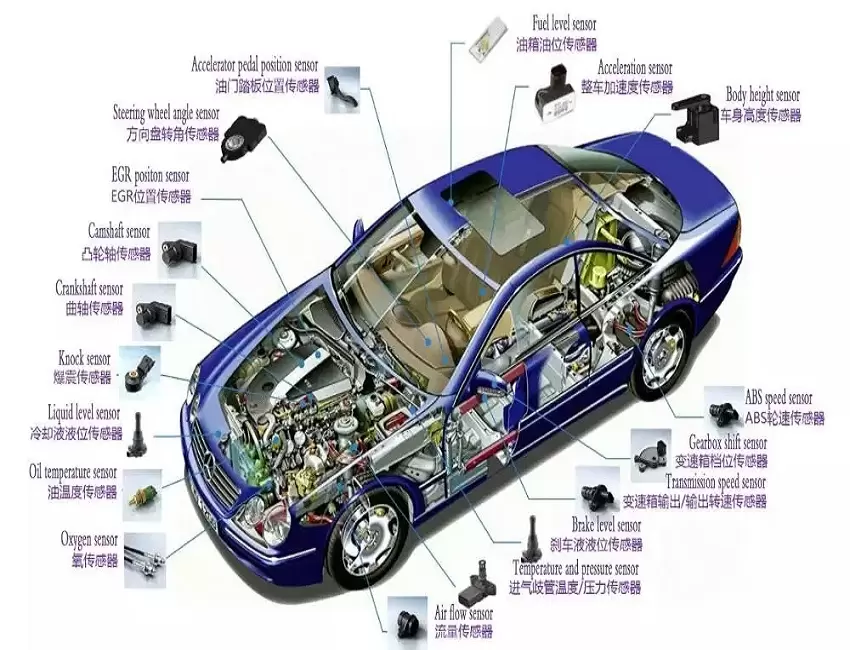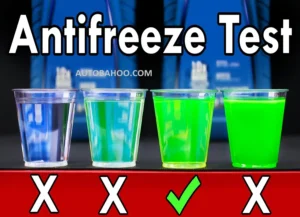Learning about how to maintain Vehicle Fluids for EVs has been turned upside-down in this fast-changing world of electric vehicles. By erasing many fluids found in traditional cars, EVs have brought about a revolution in transport. They still rely on several crucial liquids to keep running smoothly. This comprehensive guide will dive deep into the world of automotive fluids for electric automobiles helping you navigate the unique maintenance needs of your EV.
The Fluid Revolution in Electric Vehicles
Never more to be heard of the regular oil changes and coolant makeup. There is a new age of auto repair brought about by electric vehicles which is less complicated in numerous ways but still demands precision. In this chapter we will highlight how EVs are transforming the liquid game and why it is important for every electric vehicle owner to appreciate these transformations.
Shifting Gears: How EVs Are Changing the Fluid Game
Compared to their ICE counterparts, electric cars have significantly lowered the amount of fluids required for their operation. This shift brings several advantages:
- Reduced maintenance frequency
- Lower environmental impact
- Simplified vehicle design
- Increased reliability
However it’s crucial to remember that EVs aren’t completely fluid-free. They still rely on several key liquids to function optimally.
Why Understanding EV Fluids Matters
Having knowledge is a way of having power mainly on electric automobile maintenance and here is why you need to know about EV fluids.
Extend vehicle lifespan
- Optimize performance
- Reduce unexpected repair costs
- Ensure safety on the road
- Maximize resale value
The Essential Fluids: Keeping Your EV Running Smooth
Unlike gas-powered cars, electric vehicles have less amount of fluids but the existing ones are vital since they contribute significantly towards performance and durability of these cars. The frequently used automobile liquids in EVs will be analyzed in the following article.
Battery Coolant: The Lifeblood of EV Performance
Central to every electric vehicle is its battery pack and it is essential to keep it in the right temperature for optimal performance and longevity. This is where battery coolant comes into play.
Types of Coolants Used in Popular EV Models
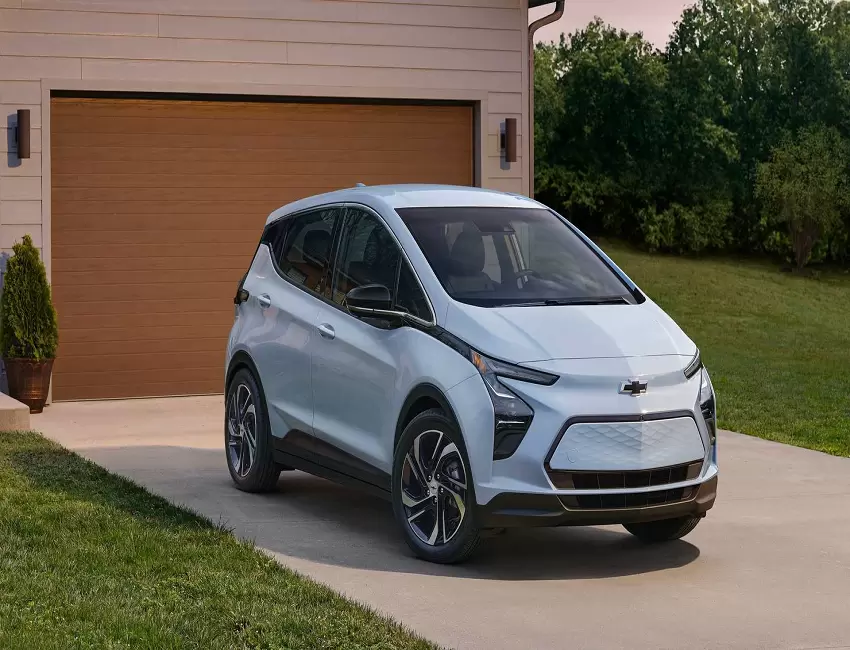
Different electric car manufacturers use various types of EV coolant:
| Manufacturer | Coolant Type |
| Tesla | Propylene glycol-based |
| Nissan | Ethylene glycol-based |
| BMW | Low-conductivity coolant |
| Chevrolet | Dex-Cool® |
In electric cars, like in traditional automobiles, a coolant based on glycol is commonly utilized but some special compositions were designed particularly for EV batteries due to their distinct needs.
How Coolant Impacts Battery Life and Charging Efficiency
Electric vehicle coolant plays a crucial role in:
- Maintaining optimal battery temperature during charging and discharging
- Preventing overheating during fast charging
- Extending overall battery lifespan
- Ensuring consistent performance in various weather conditions
It looks like electric vehicle (EV) batteries can last longer by as much as 15% if they have a good thermal management arrangement.
Maintenance Schedule and Best Practices
In contrast to the coolant located in internal combustion engine (ICE) cars, electric vehicle (EV) coolants have a tendency to last longer; nevertheless, they don’t function as liquids that can be left unattended indefinitely. Here are some key points to consider when using EV coolant:
- Check coolant levels regularly (at least twice a year)
- Follow manufacturer guidelines for coolant replacement intervals
- Use only the specified coolant type for your EV model
- Have a professional perform coolant flushes to ensure proper system cleaning
“Proper coolant maintenance is like giving your EV’s battery a long healthy life insurance policy,” says Sarah Chen, EV technician at Green Drive Motors.
Brake Fluid: Stopping Power in the Electric Age
Despite the usual presence of regenerative braking in electric vehicles, conventional brakes of hydraulic type continue to hold an important position. This means brake fluid remains an essential vehicle fluid for EVs.
Why EVs Still Need Traditional Brake Fluid
Electric cars rely on brake fluid for several reasons:
- Emergency stopping power
- Parking brake operation
- Supplementing regenerative braking at low speeds
- Ensuring consistent brake pedal feel
Differences in Brake Fluid Usage Between EVs and ICE Vehicles
While EVs use brake fluid there are some key differences in its application:
- EVs typically use their hydraulic brakes less frequently due to regenerative braking
- Some electric vehicles use specialized brake fluids designed for their unique systems
- Brake fluid in EVs may last longer due to reduced usage
Signs It’s Time for a Brake Fluid Change in Your EV
Watch for these indicators that your electric vehicle needs fresh brake fluid:
- Soft or spongy brake pedal feel
- Warning lights on the dashboard
- Discoloration of the brake fluid (should be clear to slightly yellow)
- Reaching the manufacturer’s recommended change interval
Transmission Fluid: Smooth Operator for Electric Motors
While many people associate transmission fluid with complex gearboxes in ICE vehicles electric cars also use a form of gearbox fluid to keep their simpler transmissions running smoothly.
Single-Speed vs. Multi-Speed EV Transmissions
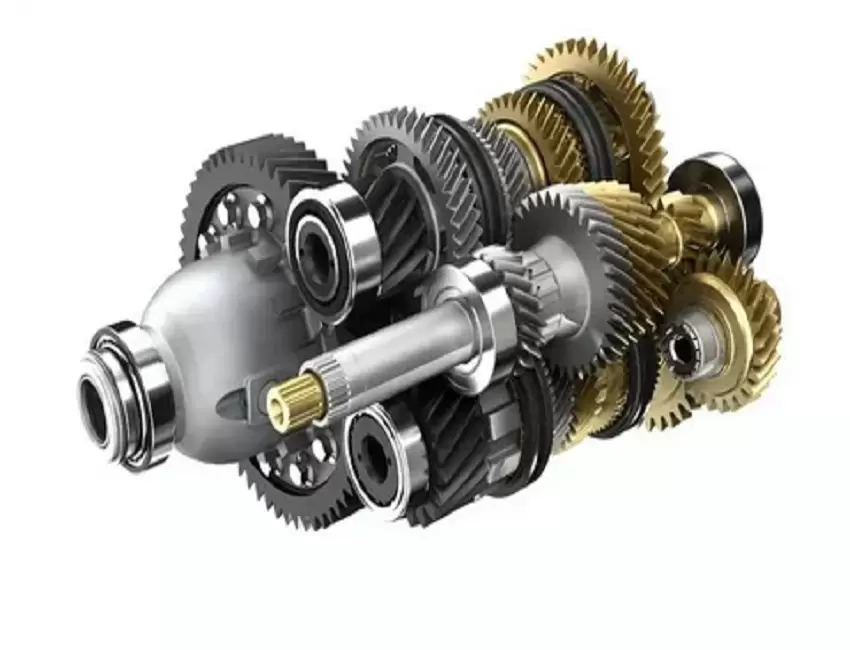
Most electric vehicles use a single speed transmission, but some models feature multi speed gearboxes:
| Transmission Type | Examples |
| Single-speed | Tesla Model 3, Nissan Leaf, Chevrolet Bolt |
| Multi-speed | Porsche Taycan, Audi e-tron GT |
Specialized Fluids for EV Gearboxes
Electric vehicle transmission systems often require specialized transmission oil that differs from traditional automatic transmission fluid (ATF). These fluids are designed to:
- Provide excellent electrical insulation
- Offer superior heat dissipation
- Ensure compatibility with EV-specific components
When (and If) to Change Transmission Fluid in Popular EV Models
Transmission fluid change intervals for EVs vary widely by manufacturer:
- Tesla: Generally, no transmission fluid changes required for the life of the vehicle
- Nissan Leaf: Inspect at 60,000 miles, change if necessary
- Chevrolet Bolt: Modifying each hundred fifty thousand miles
- Porsche Taycan: First change at 60,000 miles and then every 120,000 miles thereafter
Always consult your vehicle’s manual for specific recommendations.
Secondary Fluids: Enhancing Your EV Experience
While not as critical as coolant or brake fluid these secondary fluids play important roles in your electric vehicle’s performance and comfort.
Screen Wash: Keeping Your View Clear
Screen wash also known as windshield washer fluid is one area where EVs and traditional cars share common ground. This car window cleaner is essential for maintaining visibility in all driving conditions.
EV-Specific Screen Wash Formulations
Some manufacturers offer screen cleaner formulations specifically designed for electric cars:
- Enhanced cleaning power for bug splatter and road grime
- Low-freezing point for cold climates
- Compatibility with advanced sensor and camera systems
Impact on Sensor and Camera Performance
The latest technology in electric cars uses numerous sensors along with cameras that can facilitate advanced driver assistance systems (ADAS). The functioning of these systems depends on clean windshields and also sensors. Regular use of screen wash helps ensure:
- Clear vision for cameras used in autopilot systems
- Good Performance of Wipers that Can Sense Rain.
- There is an undeniable accuracy of the readings that are taken by sensors which are mounted on windshields
Thermal Management Fluids: Beyond the Battery
While battery cooling gets the most attention electric vehicles use various thermal management fluids to regulate temperatures throughout the vehicle.
Motor and Inverter Cooling Systems
High-performance electric cars often use separate cooling systems for their motors and inverters. These systems may use:
- Dielectric fluids for direct cooling of electrical components
- Water-glycol mixtures for indirect cooling systems
- Oil-based coolants for certain motor designs
Cabin Heating and Cooling Fluids in EVs
Electric vehicles approach cabin climate control differently than ICE vehicles:
- To manage the temperature of the cabin efficiently, heat pump systems use refrigerants for both heating and cooling.
- In some EVs, they use glycol-based coolant in that might carry the requirement of transferring heat from either the battery or motor to some parts of the interior.
The Absent Fluids: What EVs Leave Behind
The elimination of several conventional vehicle fluids in electric vehicles is one of their major benefits. Let us take a look at what is no longer present in an EV’s rear windows.
Engine Oil: Waving Goodbye to Frequent Oil Changes
The absence of engine oil is perhaps the most noticeable fluid-related change for new EV owners. Benefits include:
- No more regular oil changes
- Reduced environmental impact from oil disposal
- Lower maintenance costs over time
Power Steering Fluid: The Shift to Electric Assist Systems
Electric power steering is employed by contemporary EVs thus erasing the traditional hydraulic liquid from the steering system. This switch has the following merits:
- Improved energy efficiency
- Reduced maintenance requirements
- More precise steering control
Fuel and Emissions-Related Fluids: A Thing of the Past
Electric vehicles have no need for:
- Gasoline or diesel fuel
- Engine coolant (separate from battery coolant)
- DEF (Diesel Exhaust Fluid)
This elimination of fluids contributes to the overall simplicity and reduced maintenance needs of EVs.
The Future of EV Fluids
The new demands will thus require new fluids for their electronic control systems and the rest of them when we look into the future. Let’s make some predictions now.
Emerging Technologies in EV Fluid Management
Innovations on the horizon include:
- Self-healing coolants that can repair minor leaks
- Smart fluid monitoring systems for predictive maintenance
- Bio-based fluids with reduced environmental impact
Solid-State Batteries: A Fluid-Free Future?
As a result, it’s expected that solid state batteries used in electric vehicles will completely change this market forever. These batteries could potentially eliminate the need for liquid coolants further simplifying EV maintenance.
Recycling and Environmental Considerations for EV Fluids
As the electric vehicle market grows so does the importance of responsible fluid disposal and recycling. The industry is focusing on:
- Developing more easily recyclable fluids
- Creating closed-loop recycling systems for EV-specific fluids
- Reducing the overall environmental impact of vehicle fluids
DIY vs. Professional Maintenance: What EV Owners Need to Know
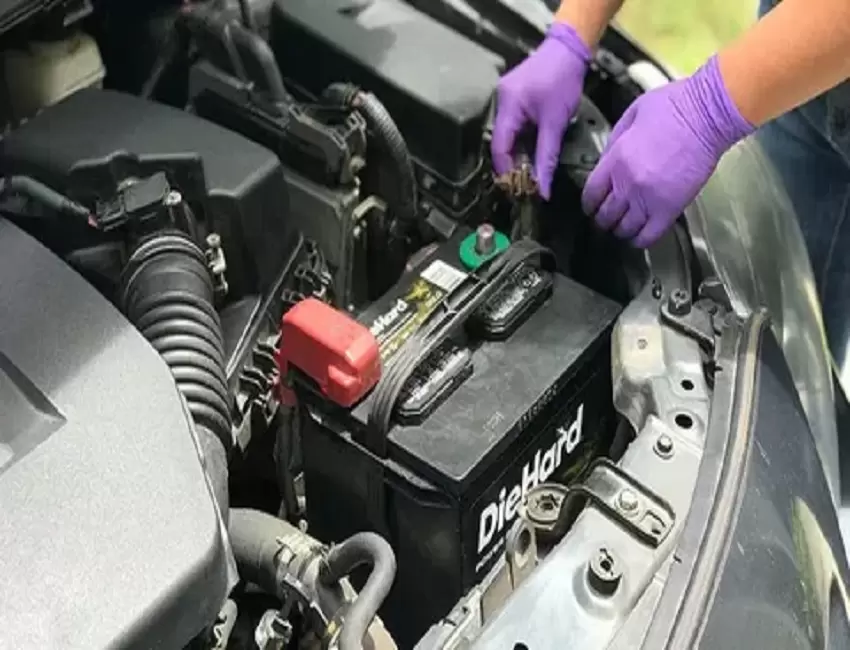
Since electric vehicles typically need less upkeep than their internal combustion engine equivalents, it remains vital to determine the assignments you can perform personally and when it is time to call in a pro.
Which Fluid-Related Tasks You Can Tackle at Home
Many EV owners can confidently perform these maintenance tasks:
- Checking and topping up screen wash
- Inspecting brake fluid levels
- Monitoring coolant levels (but not replacing coolant)
When to Seek Expert Help for EV Fluid Maintenance
Leave these tasks to the professionals:
- Coolant system flushes and refills
- Brake fluid replacements
- Any work involving the high voltage battery system
- Transmission fluid changes (when required)
“While EVs are simpler in many ways their high voltage systems require specialized knowledge. When in doubt, consult a certified EV technician” advises John Park, Master EV Technician at Electro Drive Services.
FAQ: Vehicle Fluids for EVs
Q: Do electric cars need oil changes?
A: No, electric vehicles don’t require traditional oil changes. The absence of combustion engines leads to the omission of engine oil in electric automobiles. To ensure effective performance by electric cars, many other fluids suppliers like brake and cooling fluids must be there as well.
Q: How often should I change the coolant in my electric car?
A: Intervals for altering the coolant differ from one producer to another. Some EVs never need coolant changes while others recommend checks every 50,000 miles. Typically, you should check your car’s manual for the specific coolant service intervals that apply to it.
Q: Can I use regular brake fluid in my EV?
A: The majority of electric vehicles rely on standard DOT 3 or DOT 4 brake fluid. However, certain models demand particular formulations. In order to ensure adequate performance and longevity it is advisable to always consult the owner’s manual and utilize the recommended brake fluid.
Q: Do electric cars have transmission fluid?
A: Yes, most electric cars have transmission fluid but it’s often called “gearbox oil.” Many EVs have single speed transmissions with minimal maintenance needs. Some manufacturers recommend occasional checks or changes, while others consider the fluid lifetime.
Q: Is it safe to add windshield washer fluid to my EV myself?
A: You know what, indeed you can do that without worrying about damaging your car’s system. It is one of the simplest tasks for persons who own electric vehicles (EV). All that is required is to locate the tank beneath the bonnet and put the correct liquid inside.
Conclusion: Staying Fluid in the Electric Era
Automotive fluids have been made easier due to electric vehicles, however they still exist. With knowledge of main fluids ensuring your EV runs perfectly from battery coolants up to brake fluid it will be possible to achieve best performance, longevity as well as safety of electric cars.
Remember these key takeaways:
- Regular checks of coolant and brake fluid levels are essential
- Follow manufacturer guidelines for fluid maintenance schedules
- Use only specified fluids designed for your EV model
- Don’t hesitate to seek professional help for complex fluid-related tasks
While it is important to note that the field work was carried out in October 2023, you should make it a point to follow developments surrounding electric vehicle fluid and maintenance. This will help you maintain your car at peak performance while at the same time supporting a revolution towards environment-friendly transportations.

With over 5 years of dedicated experience in the automotive industry, I am passionate about all things automotive. My journey began with a deep curiosity for automobiles, which led me to delve deeper into their mechanics, technology and trends. My expertise spans various aspects of the automotive world, from the latest electric vehicles to classic car restoration techniques. Through my articles, I aim to share my knowledge and insights, helping readers stay informed and inspired in the fast-paced world of the automobile.
